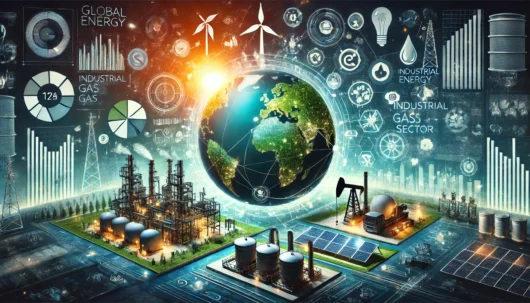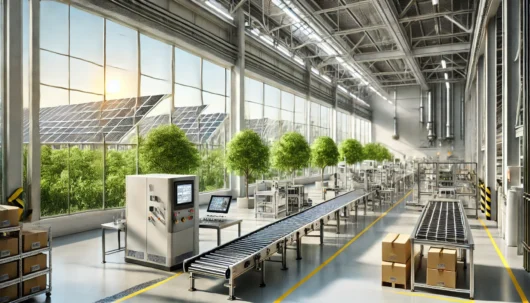Understanding CO2 in Plant Growth
Carbon dioxide (CO2) is a fundamental element in photosynthesis, the process by which plants convert light into energy. In hydroponic systems and indoor farms, where growing conditions are tightly controlled, CO2 for hydroponics and indoor farming is a key factor in maximizing plant health, speed of growth, and overall yield.
Unlike traditional outdoor farming, where plants naturally absorb CO2 from the air, enclosed indoor environments often have lower CO2 concentrations, which can limit plant development. Proper CO2 supplementation ensures plants receive the levels necessary for optimal photosynthesis and biomass production.
Why CO2 is Critical for Hydroponics and Indoor Farming
1. Faster Growth and Higher Yields
Studies have shown that when CO2 for hydroponics and indoor farming is optimized, plant growth can increase by 30-50%. Elevated CO2 levels (1,200-1,500 ppm) allow plants to:
✅ Absorb more nutrients
✅ Develop stronger roots and stems
✅ Produce higher yields in a shorter time
For commercial hydroponic farms, this means higher efficiency, faster turnaround times, and increased profits.
2. Improves Photosynthesis Efficiency
At ambient CO2 levels (around 400 ppm), plants can only photosynthesize at a limited rate. By increasing CO2, plants are able to process light and nutrients more efficiently, resulting in bigger leaves, healthier plants, and higher quality produce.
Crops such as lettuce, tomatoes, cucumbers, peppers, and cannabis thrive in CO2-enriched environments, leading to larger and more vibrant harvests.
3. Extends Growing Season & Maximizes Space
Indoor farms and hydroponic systems are designed to operate year-round, unaffected by seasonal changes. However, limited CO2 can restrict productivity. By supplementing CO2 for hydroponics and indoor farming, growers can:
✔ Ensure continuous plant growth, even in winter
✔ Optimize space efficiency in vertical farms
✔ Achieve consistent, high-quality produce throughout the year
For reliable CO2 supply, explore Ramdon’s CO2 solutions for high-purity food-grade CO2.
How to Optimize CO2 for Hydroponics and Indoor Farming
✅ Monitor & Maintain Optimal CO2 Levels
- Ideal CO2 levels for indoor farming range between 1,200-1,500 ppm.
- Levels below 400 ppm can limit plant growth, while above 2,000 ppm can become toxic.
✅ Use CO2 Generators or Tanks
CO2 can be supplemented using:
- Compressed CO2 cylinders – Ideal for precise control in hydroponic systems.
- CO2 generators – Burn propane or natural gas to release CO2.
- Fermentation-based CO2 production – A more natural, small-scale alternative.
For high-quality CO2 cylinders, check out Ramdon’s CO2 supply.
✅ Ensure Proper CO2 Distribution
To maximize CO2 absorption, ensure even distribution using:
- CO2 diffusers and air circulation fans
- Timed release of CO2 during daylight hours
- Sealed grow rooms to prevent CO2 loss
For detailed guidelines on CO2 enrichment, visit the USDA’s research on CO2 in plant production.
Common Questions About CO2 for Hydroponics and Indoor Farming
1. Can plants grow without CO2 supplementation indoors?
No. While plants naturally absorb CO2, indoor environments often lack sufficient CO2 levels. Without supplementation, growth is slower, yields are lower, and plants may become weak.
2. How do I know if my CO2 levels are too low or too high?
- Low CO2 = Slow growth, small leaves, and weak stems.
- High CO2 (above 2,000 ppm) = Leaf curling, discoloration, and poor oxygen absorption.
Using a CO2 monitor ensures optimal levels are maintained.
3. Where can I buy food-grade CO2 for hydroponics?
For high-quality CO2 for hydroponics and indoor farming, visit Ramdon’s CO2 supply page for reliable and certified CO2 cylinders.
For further best practices, check out:
- Hydroponics Research Center – CO2 Optimization in Indoor Farming
- U.S. Department of Agriculture (USDA) – CO2 and Plant Growth
Conclusion
Optimizing CO2 for hydroponics and indoor farming is a proven strategy for boosting plant growth, increasing yields, and maximizing efficiency in controlled environments. By supplementing CO2, growers can achieve:
✔ Stronger, healthier plants
✔ Higher crop yields
✔ Shorter growth cycles for faster harvests
For trusted food-grade CO2 supply, explore Ramdon’s CO2 solutions and enhance your hydroponic production today!


